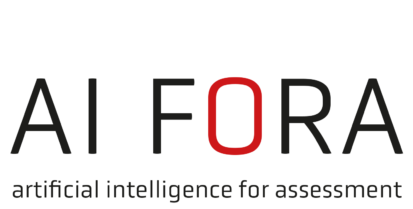In more and more countries, policymakers increasingly use Artificial Intelligence (AI) algorithms to decide on public service provisions and state benefits among their citizens whose profiles are assessed and evaluated for decision making. This applies, for example, to assigning retirement or unemployment benefits and public health insurance.

AI-based social assessment technologies for public service provision categorise present and future human behaviour on scales such as legal recipients/fraudulent recipients, deserving/non-deserving, needy/non-needy, high-performing/low-performing, desirable/non-desirable, or acceptable/not-acceptable.
Delegating decisions based on such value judgements to machines raises ethical, philosophical and social issues and leads to important questions of responsibility, accountability, transparency and the quality of social decision making about the distribution of scarce resources. Often, public opinion and discourse in these areas is highly emotional and emphatic, because societal core values are affected and at stake, and decisions on providing or refusing public social services have far-reaching consequences for the concerned individuals.
However, perceptions, attitudes, discussions and acceptance of AI use for public policy vary between countries, as do the types and degrees of AI implementation, with reference to norms and values in-use, but also related to technology status, economic models, civil society sentiments, and legislative, executive and judicial characteristics. For example, while in Germany (and most of the so-called western world) the Chinese project of a “Social Credit System” is portrayed as ethically debatable and worrying, the majority of China’s citizens seems to welcome the initiative for its assumed generation of benefit and promotion of honesty in society and the economy. In digital frontrunner Estonia, AI use for assessing the future job market performance of individuals is publicly supported as a government project and highly appreciated by citizens. According to the Digital Economy and Society Index 2019, Estonia ranks second in Europe in both digital public service provision and in e-governance usage. In India, however, resistance of AI use by central Government for welfare provisions is constantly rising and gains more and more voice. Thus, attitudes not only vary between countries but also within countries between societal groups where winners and victims can be discerned supporting or rejecting technological developments: for example, while many municipalities and districts in the US wholeheartedly embrace the use of AI for assigning welfare provisions, legal and civil society organisations provide example cases for the opting-out from these developments, e.g. stopping the Arkansas State Department of Human Services from using a computer algorithm to determine medical benefits for people with severe disabilities.
To understand and shape the role of AI for future societies, therefore, needs a participatory approach involving many relevant stakeholders, which includes research methods to compare empirical cases, to model future societal scenarios on detail level, and to create better, i.e. more responsible AI technology adapted to context-specific social value requirements. AI FORA’s approach represents this general research design, which is realised by an interdisciplinary cooperation between the technical and the social sciences embedded in a transdisciplinary multi-stakeholder framework at all levels of the project.
